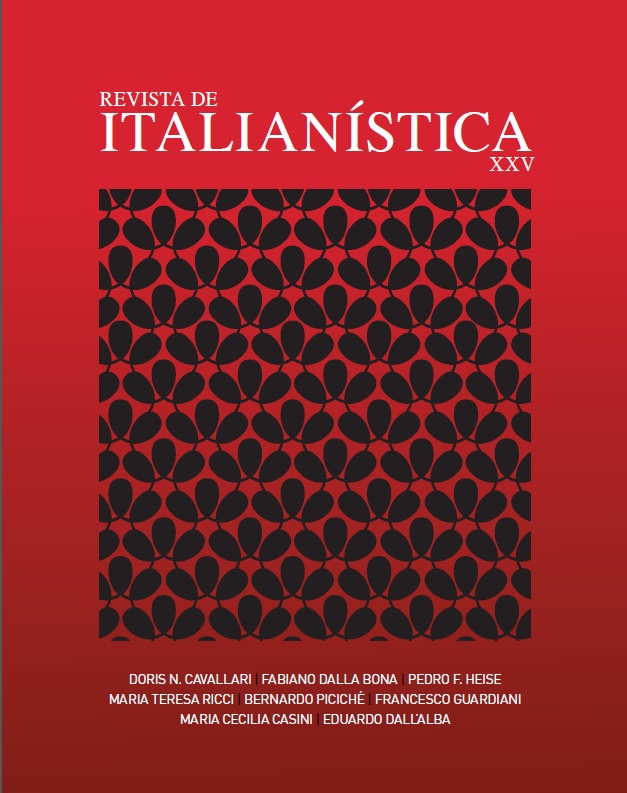Caravaggio e il Maccheronico di Teofilo Folengo
DOI:
https://doi.org/10.11606/issn.2238-8281.v0i25p51-74Keywords:
Caravaggio, Macaronic, Teofilo Folengo, Baldus, Merlin Cocai, Michelangelo da Merisi, ParodyAbstract
The work of the painter Michelangelo Merisi (better known as Caravaggio) reveals ideological and stylistic affinity with the literary production in macaronic Latin by Teofilo Folengo. Baldus, Folengo’s macaronic masterpiece, constitutes a typical example of what Genette defined as “serious parody”. By turning the ideological status quo upside down and by ridiculing its stylistic values, Folengo challenges the cultural and political establishment of his time. His mockingly polemical vein scorns pedantry in art and hypocrisy in religion. This analysis does not aim at establishing an influence of Folengo on Caravaggio, but rather an analogy. Folengo’s and Caravaggio’s relatively similar biographical and culture background, plus a common religious sensibility, encourage this hypothesis. Both authors come from the Italian region of Lombardy and present the marks of their typical regional ways to show indignation through irreverence as well as Christian creed through crude realism. The paradox, perfectly embodied by Christ, represents the inspirational force for both artists who are notorious for infringing the “Renaissance decorum”. Art historians will have to consider if the macaronic can hereinafter be included among the pictorial categories. This study argues only for the proximity in ideological belief and artistic style between Caravaggio and Folengo’s macaronic plumeDownloads
Download data is not yet available.
Downloads
Published
2013-06-07
Issue
Section
Não definida
License
A revista retém os direitos patrimoniais dos artigos e os publica simultâneamente sob uma Licença Creative Commons-Atribuição-Não Comercial-Sem Derivações.
How to Cite
Piciché, B. (2013). Caravaggio e il Maccheronico di Teofilo Folengo. Revista De Italianística, 25, 51-74. https://doi.org/10.11606/issn.2238-8281.v0i25p51-74



